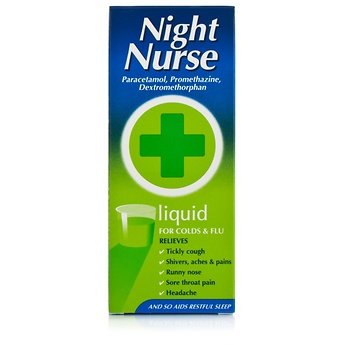Hormones are the body’s chemical messengers, playing a vital role in regulating numerous functions, from metabolism and immune response to mood and reproduction. When the balance of hormones in your body is disrupted, it can lead to a condition known as hormonal imbalance. This imbalance can have wide-ranging effects on your health and quality of life, but with proper understanding and treatment, you can manage its symptoms and regain control over your well-being.
What is Hormonal Imbalance?
Hormonal imbalance occurs when there is too much or too little of a particular hormone in the bloodstream. Your hormones regulate various bodily functions, including growth and development, metabolism, sexual function, and mood. Some common hormones that may be involved in imbalance include estrogen, progesterone, testosterone, insulin, thyroid hormones (T3 and T4), cortisol, and growth hormone.
Hormonal imbalances can be subtle and manifest in a variety of ways, ranging from mild symptoms like fatigue to more severe conditions such as infertility or chronic illness. The underlying causes of hormonal imbalances can be diverse, and understanding the potential causes is key to effective diagnosis and treatment.
Causes of Hormonal Imbalance
Several factors can contribute to hormonal imbalance. Some of the most common causes include:
1.Age-related changes
As people age, their hormone levels naturally fluctuate. In women, menopause (the time when menstruation ceases) leads to a significant drop in estrogen and progesterone levels, often resulting in symptoms such as hot flashes, mood swings, and vaginal dryness. Similarly, as men age, testosterone levels tend to decline, potentially leading to symptoms like reduced libido, fatigue, and muscle loss.
2.Stress
Chronic stress triggers the release of cortisol, the body’s primary stress hormone. Prolonged high levels of cortisol can disrupt the balance of other hormones in the body and lead to symptoms like anxiety, weight gain, and sleep disturbances. Additionally, stress can affect the menstrual cycle in women, causing irregular periods or even amenorrhea (the absence of menstruation).
3.Polycystic Ovary Syndrome (PCOS)
PCOS is a common condition that affects women of reproductive age. It is characterized by an imbalance of reproductive hormones, including excess testosterone, which can lead to irregular periods, weight gain, acne, and excess hair growth. Women with PCOS may also have difficulty getting pregnant due to ovulatory dysfunction.
4. Thyroid disorders
The thyroid gland, located in the neck, produces hormones that regulate metabolism. Hypothyroidism (underactive thyroid) occurs when the thyroid doesn’t produce enough hormones, leading to symptoms such as weight gain, fatigue, and depression. Conversely, hyperthyroidism (overactive thyroid) can cause symptoms like weight loss, increased heart rate, and anxiety.

5. Insulin resistance and diabetes
Insulin is a hormone that helps regulate blood sugar levels. In conditions like insulin resistance or Type 2 diabetes, the body becomes less responsive to insulin, leading to higher levels of circulating glucose. Insulin imbalances can contribute to weight gain, fatigue, and an increased risk of heart disease.
6. Environmental factors
Exposure to certain chemicals, such as endocrine disruptors (found in plastics, pesticides, and personal care products), can interfere with hormone function. These chemicals can mimic or block the action of hormones, potentially leading to imbalances and health problems over time.
7. Medications
Certain medications, including birth control pills, hormone replacement therapy, and corticosteroids, can alter hormone levels. If you experience symptoms of hormonal imbalance after starting a new medication, it’s essential to discuss this with your healthcare provider.

Symptoms of Hormonal Imbalance
The symptoms of hormonal imbalance can vary depending on which hormones are affected and how severe the imbalance is. Some of the most common symptoms include:
– Fatigue
Feeling excessively tired or drained, even after a full night’s sleep, is one of the most frequent complaints related to hormonal imbalance. Hormones like thyroid hormones and cortisol play a key role in energy regulation, and an imbalance in these can cause chronic fatigue.
– Weight changes
Unexplained weight gain or difficulty losing weight is common in people with hormonal imbalances. Conditions like hypothyroidism and insulin resistance can slow down metabolism, leading to weight gain. On the other hand, imbalances in cortisol or thyroid hormones can sometimes cause weight loss.
– Irregular periods
Women with hormonal imbalances often experience irregular menstrual cycles. This may include skipped periods, heavier or lighter bleeding, or very frequent cycles. Conditions like PCOS, thyroid disorders, and stress-related hormonal shifts can disrupt the normal menstrual cycle.
– Mood swings and irritability
Hormonal fluctuations can also affect mood. Many people with hormonal imbalances experience increased irritability, mood swings, or even symptoms of depression and anxiety. Estrogen and progesterone, in particular, are known to influence mood and emotional regulation.
– Sleep disturbances
Hormonal imbalances can also impact your ability to fall asleep or stay asleep. Cortisol, the stress hormone, should decrease at night to help you sleep, but chronic stress can keep cortisol levels elevated, leading to insomnia or disrupted sleep.
– Acne and skin changes Hormonal imbalances, particularly those related to androgen hormones like testosterone, can lead to increased oil production in the skin, which can cause acne. This is especially common in conditions like PCOS.
– Hair loss or thinning
Fluctuations in estrogen, progesterone, or thyroid hormones can also lead to hair thinning or loss. Women may notice this during menopause, or men may experience hair thinning due to reduced testosterone levels.
Diagnosing Hormonal Imbalance
If you suspect you have a hormonal imbalance, the first step is to see a healthcare provider. Diagnosis typically involves a thorough review of your medical history, symptoms, and a physical examination. Your doctor may recommend blood tests to measure hormone levels. Depending on your symptoms, additional tests may be performed, such as:
– Thyroid function tests to measure levels of thyroid hormones (T3, T4) and thyroid-stimulating hormone (TSH).
– Blood glucose and insulin tests to evaluate insulin resistance or diabetes.
– Hormonal panels to check estrogen, progesterone, testosterone, and cortisol levels.
– Ultrasound of the ovaries or uterus to assess for conditions like PCOS.
Treatment Options for Hormonal Imbalance
Once the underlying cause of your hormonal imbalance is identified, your healthcare provider can recommend a tailored treatment plan. Treatment options may include:
1.Lifestyle changes
In many cases, lifestyle modifications, such as improving diet, managing stress, and increasing physical activity, can help restore hormone balance. Eating a balanced diet with plenty of whole foods, reducing processed foods, and managing stress through practices like meditation or yoga can have a significant impact on hormone levels.
2. Medications
Depending on the type of hormonal imbalance, your doctor may prescribe medications to help regulate your hormones. For example, thyroid hormone replacement therapy for hypothyroidism, birth control for irregular periods, or insulin-sensitizing drugs for PCOS and diabetes.
3. Hormone Replacement Therapy (HRT)
In cases of menopause or perimenopause, hormone replacement therapy (HRT) may be recommended to balance declining estrogen and progesterone levels. However, HRT carries some risks and should be discussed with your healthcare provider.
4. Alternative therapies
Some people find relief from hormonal imbalance symptoms through alternative therapies like acupuncture, herbal supplements, and mindfulness practices. It’s important to discuss any alternative treatments with your healthcare provider to ensure they are safe and effective.
Conclusion
Hormonal imbalance is a common issue that can affect various aspects of your health, from mood and energy levels to metabolism and reproduction. Recognizing the symptoms and understanding the underlying causes is crucial for effective treatment. By working closely with your healthcare provider, you can develop a comprehensive treatment plan that may include lifestyle changes, medications, or hormone replacement therapies. With proper care and attention, it is possible to restore hormone balance and improve overall well-being.
________
Disclaimer: Health articles on medical conditions are for information only and do not form a basis for diagnosis. We recommend that if you have any concerns, speak to your doctor or pharmacist for further help and guidance.








